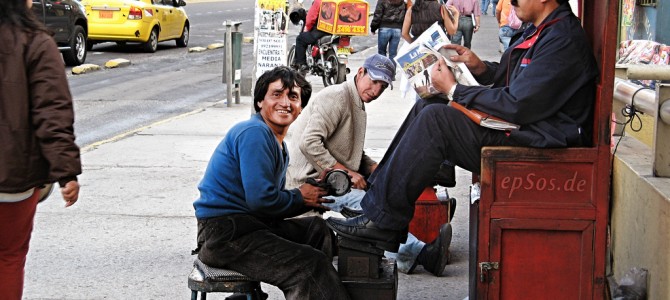
Recently, Daniel Payne argued that welfare “stigma” is invaluable and warrants a robust defense. This quixotic understanding of poverty in America will do very little to reform the current welfare system or alleviate poverty. Americans struggling in poverty need hope, not stigma, and the welfare system needs reform, not contempt.
Payne argues that stigmatizing school children who receive a government-funded lunch at their elementary schools will somehow reduce the number of children who need government assistance. He seems particularly concerned that nine-year-olds realize Payne’s tax dollars has paid for their lunch.
Although he does not fully embrace an “aggressive public shaming for anyone who goes on the dole,” his approach to poverty and welfare reform is unhelpful because it utterly fails to address the causes of poverty, reform the current system, or even win the public argument as to why those two issues matter.
How About Some Solutions
Conservatives have real solutions for poverty, and the Republican welfare reform act in the 1990s is one of conservatism’s greatest victories against the rise of the welfare state. Conservative policies, which place a premium on empowering individuals, communities, and local organizations instead of big government or big philanthropy, will do more to alleviate poverty and limit the scope of government.
To Payne’s credit, the cultural acceptance of welfare is a fundamental obstacle to serious efforts to roll back the size and scope of government. Moreover, for many of the reasons he points out, every welfare program desperately needs significant reform efforts. However, this fight to break the cycle of generational poverty—and welfare enrollment—should center on providing a viable alternative rooted in the conservative principles of constitutionalism, limited government, individual liberty, and human freedom and flourishing.
We are spending nearly $800 billion on almost a hundred programs aimed at fighting poverty, yet the “War on Poverty” has had almost no effect. The solution here is not to stigmatize every elementary student who gets a free lunch. Rather, conservatives should seek to create a vision of America that is filled with hope in the possibilities of future advancement for every American.
Instead of mocking a child on welfare in a Richmond public school, fight to make sure she has competitive options for her education through a robust school choice program. Instead of acrimoniously speaking of “welfare queens,” conservatives should make it easier for single moms to end their welfare dependence by instituting innovative polices like expanding the Earned Income Tax Credit, reinstituting work requirements, and staggering welfare eligibility to make it easier to leave the system as they begin to work, or even block-granting welfare programs to states, who can do a better job than the bloated federal bureaucracy.
Fight for The Poor
The poor remain poor, and on welfare, not because they are lazy, but because they feel hopeless. Conservatives can offer hope to every American, and have a moral obligation to do so. It is not enough, not nearly enough, to bloviate about the decline of American civil society and the culture of entitlement, we must find ways to empower civic organizations, churches, and local organizations who fight in the trenches in a conservative war for the poor.
Poverty and the growing welfare state pose a grave threat to the American Dream. The real opposition is progressive liberals who have lied to the poor and working class for generations. Conservatives should fight for Americans struggling to get by, not stigmatize them. Every life matters. Every American deserves an opportunity for a better future, a better education, and a financially solvent government. Our battle to restore hope is not waged against welfare recipients and America’s working poor, but on their behalf.
Brandon James Smith is a lawyer at a public policy organization, director of the Christian Legal Aid of DC clinic in Anacostia, and an adjunct professor at American University in Washington, DC.









